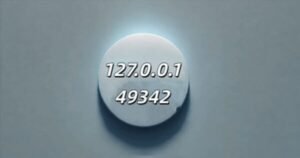Beware Spam: Who called me from this phone number 0120991013, 0120005441, 0120925527, 0120985480 in Japan

0120005441
Beware Spam from Scammers: Avoiding Phony Calls from 0120005441, 0120925527, 0120999443, 0120985480, 0120991013, 0120995553, 0120988315, 0120989393, 0120935978, 0474193809, 0525591119, 0120633439, 08005003225, 0570783890, 0120692173, 0120926348, 0120964107, 0486378324, 0120835733, 0120397862, 0120150262, 0120702091, 0120 907 636, 03 5050 1072, 0120702091 in Japan
Phone scams have become a prevalent issue worldwide, and Japan is no exception. In recent reports, a specific phone number, 0120005441, has raised concerns due to its involvement in fraudulent activities. This article aims to shed light on the potential risks associated with this number and provide guidance on how to protect yourself from falling victim to phone scams in Japan.
The Growing Threat of Phone Scams: Phone scams have evolved into sophisticated schemes that target unsuspecting individuals. Scammers use various tactics, such as impersonating government officials, financial institutions, or legitimate businesses, to trick people into revealing personal information, making financial transactions, or engaging in fraudulent activities. These scams can have severe financial and emotional consequences.
The Dangers of 0120005441:
Reports have emerged regarding suspicious calls originating from 0120005441. It is crucial to be cautious when receiving calls from this number or any unknown callers, as they may attempt to deceive and defraud unsuspecting victims. Recognizing the potential risks associated with this number is an important step towards protecting yourself and your personal information.
Identifying Phone Scams:
To safeguard yourself from phone scams, it is essential to be able to identify potential red flags. Here are some common indicators of phone scams:
- Unsolicited Calls: Be cautious of unsolicited calls from unknown numbers, especially if they claim to be from a government agency, financial institution, or service provider without prior contact.
- High-Pressure Tactics: Scammers often create a sense of urgency, using aggressive tactics or threats to manipulate victims into taking immediate action.
- Requests for Personal Information or Financial Details: Legitimate organizations typically do not ask for sensitive information over the phone. Be wary of calls asking for personal details, passwords, PINs, or financial information.
Protecting Yourself:
To protect yourself from phone scams, consider the following preventive measures:
- Be Vigilant: Always be cautious when receiving calls from unfamiliar numbers. If something feels suspicious or too good to be true, trust your instincts and hang up.
- Do Not Share Sensitive Information: Avoid disclosing personal information, financial details, or passwords over the phone unless you have initiated the call and are certain of the caller’s identity.
- Verify Caller’s Identity: If you receive a call from a purported organization, independently verify their identity by contacting the official helpline or customer service using trusted contact information from their official website or documents.
- Install Call-Blocking Apps: Utilize call-blocking apps on your smartphone to automatically detect and block known scam numbers, including 0120991013. These apps provide an additional layer of protection.
- Educate Yourself: Stay informed about the latest phone scam tactics and popular scams circulating in Japan. Government agencies and consumer protection organizations often provide information and resources to raise awareness about ongoing scams.
Conclusion:
Phone scams, including those originating from 0120005441, pose a significant threat to individuals in Japan. By remaining vigilant, recognizing the signs of phone scams, and implementing preventive measures, you can protect yourself from falling victim to fraudulent activities. Remember to be cautious, avoid sharing sensitive information, and report suspicious calls to relevant authorities. By staying informed and taking necessary precautions, you can actively contribute to combating phone scams and safeguard your personal and financial well-being.
FAQ: Scam Alert – Beware of Phone Calls from 0120005441 in Japan
Q: What is the significance of the phone number 0120005441, and why should I be cautious of calls from this number?
A: The phone number 0120005441 has raised concerns due to its involvement in phone scams in Japan. Reports have emerged of suspicious calls originating from this number. It is important to exercise caution when receiving calls from 0120005441 or any unknown callers, as they may attempt to deceive and defraud unsuspecting victims.
Q: What are phone scams?
A: Phone scams are fraudulent activities conducted through phone calls. Scammers use various techniques, such as impersonating government officials, financial institutions, or legitimate businesses, to trick individuals into revealing personal information, making financial transactions, or engaging in fraudulent activities. These scams can result in financial loss and potential harm to victims.
Q: How can I identify phone scams, including calls from 0120005441?
A: Identifying phone scams can help protect you from falling victim to fraudulent activities. Here are some signs that may indicate a phone scam:
- Unsolicited Calls: Be cautious of unexpected calls from unknown numbers, especially if they claim to be from government agencies, financial institutions, or service providers without prior contact.
- High-Pressure Tactics: Scammers often create a sense of urgency, using aggressive tactics or threats to manipulate victims into taking immediate action.
- Requests for Personal or Financial Information: Legitimate organizations usually do not ask for sensitive information over the phone. Be wary of calls asking for personal details, passwords, PINs, or financial information.
Q: How can I protect myself from phone scams, specifically from calls originating from 0120005441?
A: To protect yourself from phone scams, consider the following preventive measures:
- Be Vigilant: Exercise caution when receiving calls from unfamiliar numbers. If something feels suspicious or too good to be true, trust your instincts and end the call.
- Do Not Share Sensitive Information: Avoid disclosing personal information, financial details, or passwords over the phone unless you have initiated the call and can verify the caller’s identity.
- Verify Caller’s Identity: If you receive a call from a purported organization, independently verify their identity by contacting the official helpline or customer service using trusted contact information.
- Install Call-Blocking Apps: Use call-blocking apps on your smartphone to automatically detect and block known scam numbers, including 0120005441. These apps provide an additional layer of protection.
- Stay Informed: Stay updated on the latest phone scam tactics and popular scams circulating in Japan. Government agencies and consumer protection organizations often provide resources to raise awareness about ongoing scams.
Q: What should I do if I receive a suspicious call from 0120005441 or any other potential phone scam?
A: If you receive a suspicious call, including calls from 0120005441 or any unknown number, take the following steps:
- Hang Up: End the call if it seems suspicious or you feel uncomfortable.
- Do Not Engage: Avoid providing any personal information, financial details, or passwords.
- Report the Incident: Report the suspicious call to the relevant authorities, such as the local police or consumer protection agencies. Providing details about the call can assist in their investigations and efforts to combat phone scams.
Q: How can I contribute to combating phone scams?
A: You can play an active role in combating phone scams by:
- Reporting Suspicious Calls: Report any suspicious calls, including those from 0120005441 or other potential phone scams, to the local authorities or consumer protection agencies.
- Sharing Information: Spread awareness among your family, friends, and colleagues about phone scams and the importance of being cautious.
- Staying Informed: Stay updated on
Also Read:





